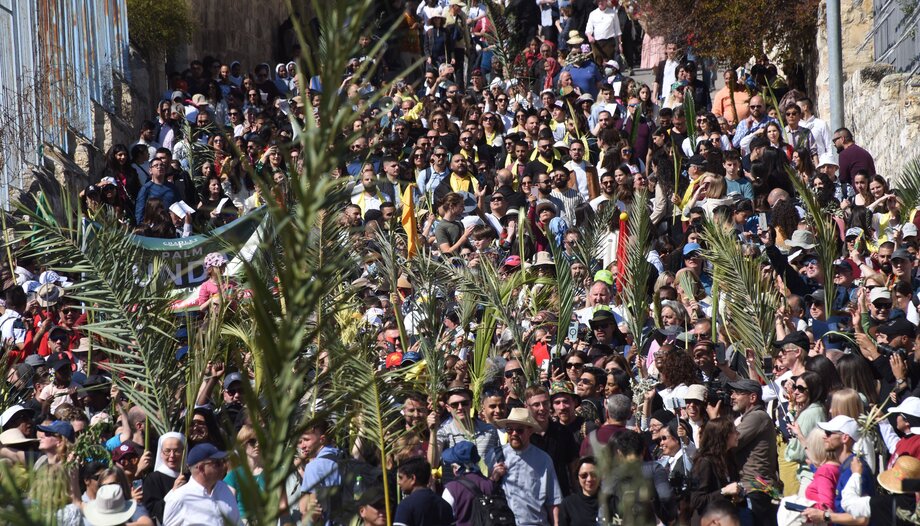 Synod Assembly in Spain: "We listen to the Holy Spirit by listening to the people of today".
Synod Assembly in Spain: "We listen to the Holy Spirit by listening to the people of today". Keys and risks of a Synod that aims to involve the whole Church
Keys and risks of a Synod that aims to involve the whole ChurchThe event, which took place on June 20 in the Sala Stampa, was attended by Cardinal Mario Grech, Secretary General of the General Secretariat, Cardinal Jean-Claude Hollerich, Archbishop of Luxembourg, and Father Giacomo Costa, consultant to the General Secretariat of the World Council of Churches. Synod.
During the press conference, brief testimonies on the preparation of the October assembly were presented by Helena Jeppesen-Spuhler, member of the Swiss delegation to the Continental Assembly in Prague; Sister Ester Lucas, member of the SECAM Synodal Team, Theology Commission, who read the text of Father Rafael Simbine Junior, Secretary General of SECAM; and Nadia Coppa, President of the International Union of Superiors General.
Stages of the Synod
"The Synod began on October 10, 2021, with the opening celebration in St. Peter's. Since then, the first phase has been divided into three stages: the first, in the local Churches, with the
consultation with the People of God. The invitation was addressed to everyone, in particular to the peripheries and to those who for one reason or another feel "excluded"; the second, in the Episcopal Conferences, with the discernment of the bishops on the contributions of the local Churches; the third, in the continental Assemblies, with another level of discernment in view of the second phase of the Synod. Listening is necessary, because the synodal Church is, by definition, the 'Church of listening'", said Cardinal Mario Grech.
For his part, Cardinal Jean-Claude Hollerich focused in his intervention on the Instrumentum laboris document: "It is the outcome of the synodal process at all levels, an outcome that gives rise to many questions that could be answered by the participants in the Synod of Bishops. The structure of the text and the structural dynamics of the Synodal Assembly are intimately related. First of all, the text offers a narrative of the synodal process that the Church has undertaken. The text is based on a myriad of personal and communal experiences. The Church is in Synod: as we try to walk together we experience a new art of walking guided by the Spirit".
He stressed that, therefore, the text leads to a question of discernment, "a discernment about the concreteness of communion, mission and participation".
Episcopalis Communio
Father Giacomo Costa underlined the fact that the frame of reference for the assembly remains the apostolic constitution. Episcopalis CommunioThe proposed methodology is therefore in continuity with that of the most recent Assemblies, with some variations. "The proposed methodology is therefore in continuity with that of the most recent Assemblies, with some variations. In part this is due to practical reasons, related to the increase in the number of members. There is an increase in the number of bishops: about 20 more than at the last Ordinary General Assembly, that of 2018, given the growth in the number of bishops in the world. And there is an increase in non-bishops, following the expansion of participation approved by Pope Francis in April." In total, he has indicated that there are about 370 assembly members, excluding experts, while in 2018 there were 267 synod fathers, plus half a hundred auditors.
Helena Jeppesen-Spuhler emphasized the role of the laity in this process: "We are not simply Christians who are expected to receive and accept rules and prescriptions. Now we are interested in how we, the faithful, understand the Christian faith in our specific context. And in the respective texts, which summarize the results of the listening and discernment processes, our concerns and needs are reflected. They are testimonies that we are on the way to a synodal church.
The Synod and the Holy Spirit
Father Rafael Simbine Junior, in the text read by Sister Ester Lucas, pointed out the importance of the African Synodal Continental Assembly, which "marked an important milestone in the journey of the Church in Africa towards synodality. It provided an inclusive platform for delegates from all over Africa and its islands to embark on a spiritual synodal journey, guided by the Document for the Continental Stage".
Lastly, Nadia Coppa, president of the International Union of Superiors General, indicated that the synodality is not possible without the Holy Spirit: "The experience of synodality is first of all an experience of the Spirit, it is an open path, not laid out in advance, which is woven through encounter, dialogue and sharing, which comes to broaden and modify the vision of each one. To be a synodal Church, we read in the Istrumentum Laboris, is to recognize the common dignity that derives from Baptism, which makes those who receive it sons and daughters of God, members of his family and, therefore, brothers and sisters in the Church and sent to fulfill a common mission (n. 20)".











